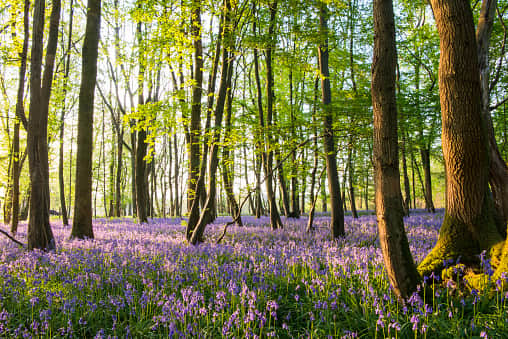The Times reveals 7 of the best places to see bluebells in the UK, including Sussex: full list
This article contains affiliate links. We may earn a small commission on items purchased through this article, but that does not affect our editorial judgement.
and live on Freeview channel 276
As spring arrives in the UK, one of the most anticipated natural phenomena is the blooming of bluebells in woodlands across the country. More than half of the world’s bluebells may be found in this country, and The Times has revealed seven of the best spots to view these waves of indigo blossoms.
According to the report, The Chiltern Beechwoods in Hodgemoor Wood, Buckinghamshire are prime bluebell country, with miles of flower-fringed, way-marked paths across the Ashridge Estate or along the Ridgeway National Trail.
Advertisement
Hide AdAdvertisement
Hide AdAbout a 10-minute walk from Chalfont St Giles, the spot is perfect for springtime strolling, with muntjac deer running through the undergrowth and red kits circling overhead. It said: “The rosy, vine-twined cottage where the poet John Milton finished writing Paradise Lost is just down the road a few old cherry trees still blossom in nearby Seer Green, once known as the ‘cherry pie village’.”
The second best to spot the wildflowers is Kinclaven Bluebell Wood in Perthshire, said The Times, as it features tufty-eared red squirrels and hammering woodpeckers among the mossy oaks and big gnarled beeches of this woodland located 11 miles from Perth. The report said May is the perfect time to view it as it it’s known for its “spectacular carpets of bluebells”.
It said: “There are winding paths in neighbouring Ballathie Wood, with glimpses of the salmon-rich Tay, Scotland’s longest river. If it’s raining, head for nearby Stanley Mills, a well preserved 18th century former cotton factory on a sharp bend in the river.”
7 of the best places to see bluebells in the UK
Below is the full list of some of the best places in the UK to spot a sea of bluebells, as revealed by The Times.
Advertisement
Hide AdAdvertisement
Hide Ad- Hodgemoor Wood, Buckinghamshire
- Kinclaven Bluebell Wood, Perthshire
- Skelghyll Woods, Ambleside, Cumbria
- Bluebell Railway, Sussex
- Cadora Woods, Monmouthshire, Gloucestershire
- Crawfordsburn Country Park, Co Down
- Captain’s Wood, Sudbourne, Suffolk
What do bluebells look like?
According to Woodland Trust, bluebells are unmistakable bell-shaped perennial herbs. They actually spend the majority of their time underground as bulbs, emerging, often in droves, to flower from April onwards. Its leaves are narrow and strap-shaped, smooth and hairless, with a pointed tip.


Its flowers are usually deep violet-blue in colour, and are bell-shaped with six petals and up-turned tips. These sweet-smelling flowers nod or droop to one side of the flowering stem (known as an inflorescence) and have creamy white-coloured pollen inside. Some bluebell flowers can be white or pink. Up to 20 flowers can grow in one inflorescence.
However, they cannot be confused with the Spanish bluebell (Hyacinthoides hispanica), which is very similar in appearance to the British bluebell. Spanish bluebells grow upright, with the flowers all around the stem, not drooping to one side like the British bluebell.
Comment Guidelines
National World encourages reader discussion on our stories. User feedback, insights and back-and-forth exchanges add a rich layer of context to reporting. Please review our Community Guidelines before commenting.
